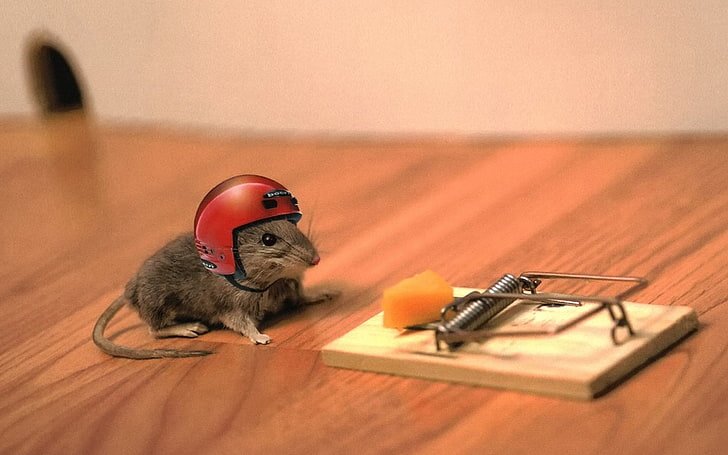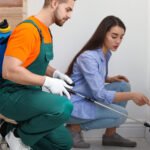Table of Contents
ToggleFirst of all,
Any residence should not welcome rats and other rodents since they not only pose a health risk but also have the ability to cause damage to property. If left unchecked, these bugs can cause havoc by nibbling through wiring and polluting food sources. We’ll go into practical tactics and preventative steps in this extensive guide to keep rats and other rodents out of your house and provide a clean, healthy living space for you and your family.
Understanding the Threat:
Rodents and rats present major health hazards in addition to being an annoyance. They can infect people with diseases like hantavirus, salmonellosis, and leptospirosis when they come into touch with their saliva, excrement, or urine. In addition, their incessant nibbling can contaminate food and water supplies, chewed wires can start electrical fires, and destroy buildings structurally.
Identifying Rat and Rodent Species:
It’s critical to identify the particular kind of rats or rodents infesting your property before putting control measures in place. The Norway rat, roof rat, house mouse, and deer mouse are common varieties. Every species differs in its habits, nesting preferences, and behaviors, all of which can affect how well control measures work.
Assessing the Infestation:
Determine the degree of the infestation after you’ve determined that rats or other rodents are present in your house. Keep an eye out for indicators including as droppings, bite marks, nests, and proof of feeding. Establish which locations are most active and give those top priority for control measures.
Preventive Measures:
To keep your home free of rats and other rodents, prevention is essential. Consider the following preventative actions:
- block Entry spots: It’s important to block any possible entry spots around your home because rats and rodents can squeeze through small openings. To seal up spaces around pipes, vents, doors, and windows, use steel wool, copper mesh, or silicone caulk.
- Protect Food Sources: To keep rats and mice out of your food, store food in sealed glass, metal, or durable plastic containers. Resolve spills right away, and don’t leave pet food out all night.
Clear and Organize: Disorganized areas offer rats and other rodents places to hide and supplies to build their nests. Organize and declutter basements, garages, and storage spaces. To get rid of crumbs and food residue, clean floors, countertops, and other surfaces on a regular basis.
Trim Vegetation: Rodents and rats may use overgrown vegetation close to your house as a hiding place or as a passage. Trim trees, bushes, and grass away from your home’s façade to lessen access opportunities and hiding spots.

Effective Control Methods:
To get the best results while managing a rat or rodent infestation, a variety of control techniques must be used.Consider these strategies for addressing the situation:
Rat Traps: For the purpose of catching and eliminating individual rats and rodents, traditional snap traps, glue traps, and electronic traps work well. Set traps next to walls and in high-activity areas, like those that are close to food sources or nesting places.
Poison Baits: Rat and rodent populations can be managed with the use of rodenticide baits, but caution must be exercised when using them, particularly in households with young children or pets. To avoid unintentional intake, carefully read the label instructions and store baits in bait stations that are difficult to tamper with.
Natural Predators: Think about luring rodent and rat predators like cats or specific bird species to your land. But be aware of the possible effects on the local ecosystems and wildlife.
Professional Extermination: If do-it-yourself approaches don’t work or if the infestation is really bad, you might think about working with a certified pest control expert. With their specialized equipment and knowledge, they can safely and effectively analyze the situation and adopt specific control measures.
In conclusion, although rodents and rats are enduring pests, you may prevent them from entering your home and keep it hygienic and clean with the appropriate strategy. You may effectively manage rat and rodent infestations by putting preventive measures into place, locating and resolving access points, and employing a combination of control approaches. Recall that maintaining long-term success in rodent and rat control requires dedication and persistence. You can spend years to come enjoying a rodent- and dirty-rat-free home if you put these methods in place.




